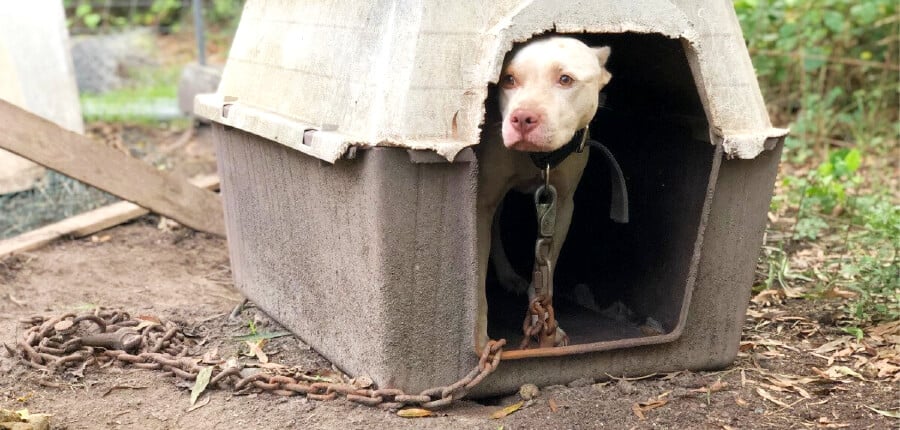Here at PETA, we see horrible animal abuse cases day after day. Our Cruelty Investigations Department is on call 24/7, helping animals and making sure that those who abuse them are held accountable. If you are like us, you have probably spent a good deal of time scratching your head wondering what kind of person would do such horrible things. That’s why we asked Dawn Drucker, PETA supporter and psychotherapist, to share her professional perspective on this.
I am a psychotherapist who has worked with all manner of people, including individuals of all age groups as well as individuals with personality disorders. I have found (and other psychotherapists I’ve talked to and whose findings I’ve read about agree with me) that there is a correlation between individuals who harm or kill animals and sociopathic behavior.
The Diagnostic and Statistical Manual of Mental Disorders (DSM) is published by the American Psychiatric Association, and it is used as a tool by mental-health workers to diagnose clients’ psychological problems, based on their symptoms and behavior. Diagnosing clients is necessary for the development of their treatment goals. Unfortunately, there are limited diagnostic tools to confirm the link between cruelty to animals and sociopathic behavior, but sociopathic behavior and the sociopathic personality type are indeed prevalent in our society.
For example, serial killers such as Ted Bundy, Jeffrey Dahmer, and Richard Ramirez—as well as countless other serial killers, murderers, and rapists—all abused animals as children, and that behavior escalated into harming humans.
The sociopathic personality first develops in early childhood or adolescence and is classified under the diagnosis of “conduct disorder,” which then develops into “anti-social personality disorder” (both of these are listed in the DSM). One of the early signs of a conduct disorder is often cruelty to animals.
An individual who is able to engage in cruelty to animals appears to have no conscience, and thus no remorse for his or her behavior. The act of cruelty to animals results from an apparent need for power and control, and this need is accompanied by a lack of empathy. Animals are targeted, especially helpless and defenseless ones, because the perpetrator does not recognize or care that they have feelings, and can experience not just physical pain but also emotional pain.
Animals can feel pain and suffer, just as humans can, but since sociopaths have a general inability to empathize, they are able to inflict pain and agony on sentient beings with no feelings of remorse—hence the increased probability that cruelty to humans is a next step.
I have often worked with clients whose attitude was “It was just an animal, so who cares?” They describe feeling a “rush” after abusing and killing an animal. This rush can also occur in people who inflict cruelty on other humans, so if a person is capable of abusing, torturing, and killing an animal, he or she may decide to go even further and inflict harm on another human being in order to achieve the same rush.
The link between violence against animals and violence against humans is well established.
Dawn Drucker, M.S., L.M.F.T., L.C.D.C., has a master’s degree in clinical psychology from Eastern Michigan University and is an L.M.F.T.-licensed marriage and family therapist and an L.C.D.C.-licensed chemical dependency counselor in Texas.





